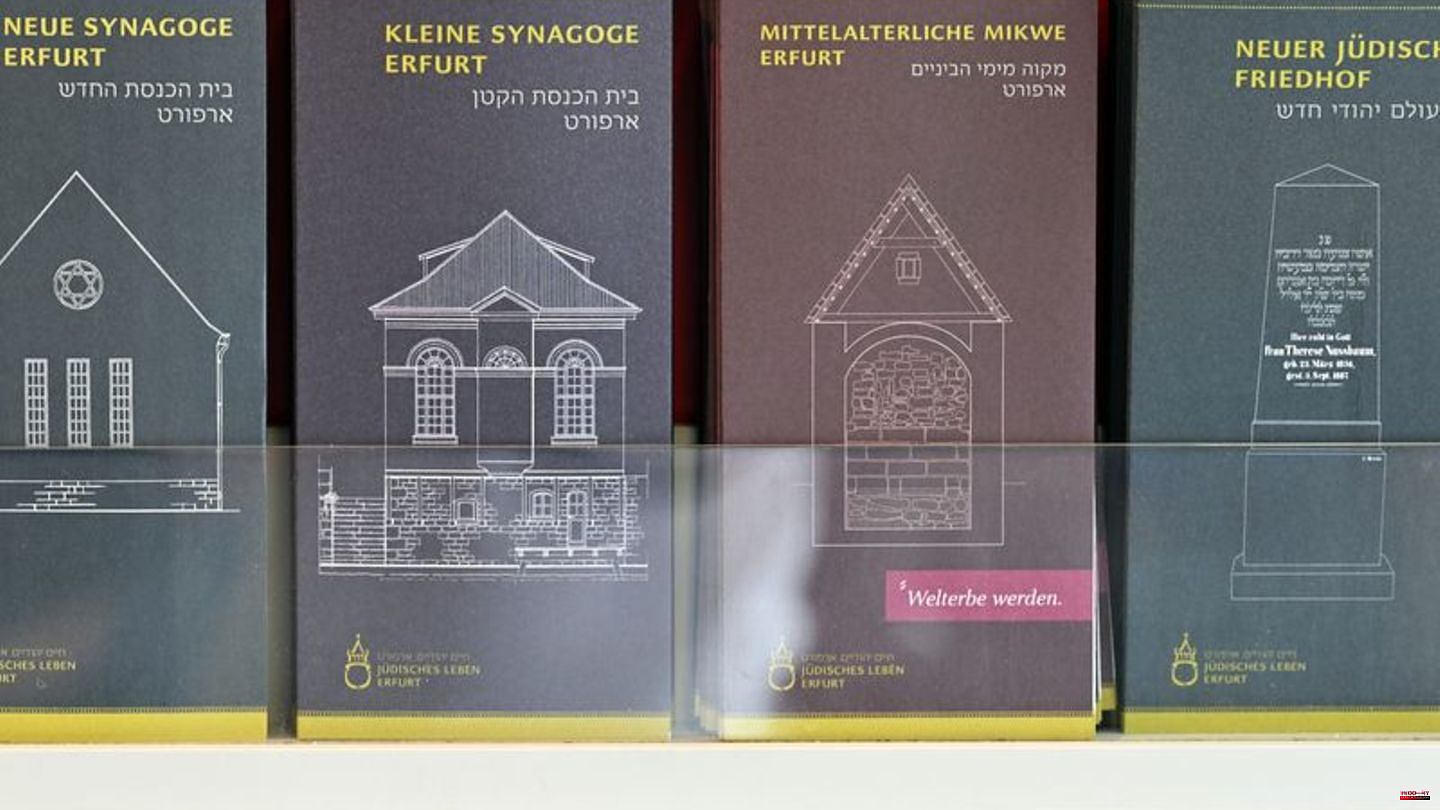The Jewish-medieval heritage of Erfurt could be added to the UNESCO World Heritage List this Sunday. The UN cultural organization Unesco wants to decide on this in Saudi Arabia's capital Riyadh. The 45th meeting of the World Heritage Committee was actually scheduled to take place in Russia in June 2022. However, due to the Russian war of aggression against Ukraine, it was postponed and will now be held in Riyadh.
Specifically, Erfurt is concerned, among other things, with several buildings in the old town, including a medieval ritual bath (mikveh) that was discovered by chance around 16 years ago, as well as Erfurt's Old Synagogue. After a pogrom in the city in 1349, in which virtually the entire Jewish community was wiped out, the synagogue was initially converted into a warehouse and later used as a restaurant and dance hall. The city suspects that this is why the building was saved from destruction by the Nazis.
Medieval Jewish life
Today there is a museum in the Old Synagogue, whose oldest traces of construction date back to around 1094. Evidence of Jewish life in medieval Erfurt is on display and is also part of the application. These include several thousand silver coins and bars as well as gold and silversmith's work from the 13th and 14th centuries. Researchers suspect that this so-called Erfurt treasure was buried during the pogrom in 1349.
The treasure was found in 1998, shortly before archaeological investigations were completed, on a plot of land in the Old City - where the Jewish Quarter was once located. The treasure, which consists of silver coins, tableware and pieces of goldsmith's art from the 13th and 14th centuries, weighs almost 30 kilograms. Scholars suspect that it was hidden by its Jewish owner during the pogrom of 1349. During this targeted persecution of the Jews, almost all of the approximately 1,000 members of the Jewish community were killed and the Jewish quarter around the synagogue was set on fire.
Against this background, evidence of medieval Jewish life in Erfurt that has survived to this day is a stroke of luck. "It was pure chance that the treasure was found, it was a private hiding place and nobody knew about it," says Maria Stürzebecher, who made the necessary preparations for Thuringia's capital for years and finally worked on the application for admission. A Jewish wedding ring is considered a particularly valuable treasure.
That speaks against Erfurt
The fact that there are already many cultural sites in Europe and Germany speaks against a positive decision for Erfurt. However, the city of Erfurt is so optimistic that it is inviting people to the public live stream of the UNESCO meeting in the town hall on the possible decision date on Sunday afternoon.
The 1,157 cultural and natural sites in 167 countries to date include the Great Barrier Reef in Australia, the Serengeti National Park in Tanzania, the Inca city of Machu Picchu in Peru and the Pyramids of Giza in Egypt. There are currently 51 World Heritage sites in Germany, including Aachen Cathedral (since 1978) and Mathildenhöhe Darmstadt (2021).












